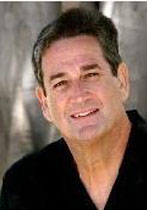By Rabbi Ben Kamin
SAN DIEGO — On a just-completed trek to the Yucatan Peninsula and its environs, something was reinforced for me that I had just learned during a Ramadan visit to the central mosque here in San Diego: if we all just calmed down and listened to each other, we’d realize that we’re all drinking from the same well.
Walking amidst the Chacchoben ruins a short distance from Costa Maya, listening to the thoughtful ruminations of our guide about the wildlife and medicinal plants and the endless array of chipped relics, pottery, and clayed images, I realized again that we all have the same fears, dreams, anxieties, and enthrallments. Our leader, a thirtyish, articulate, ruggedly handsome man named Ivan, was filled with ancestral spirituality and native blood. Remarkably—and to our great edification—he was actually born and raised on the very grounds that are now the carefully manicured national preserve of high-flung temples, archaeological sanctuaries, and moist rainforests.
Ivan explained to us about the coming Gregorian year of 2012—the subject of so much hyper-speculation, end-of-the-world prattle, and western media exploitation. Indeed, the year does coincide with the end of a Mayan calendar cycle. But rather than being the end of time, it is simply an exhilarating renewal of time, a resurgent numerical turnover—so much like the constantly renewable lunar cycles of the Torah and the Islamic almanacs.
Moreover, the Mayan narrative of Creation is gratifyingly aligned with the Book of Genesis; the Mayans believe God first made humanity from sticks, then clay, and after two destructions, settled upon the fully realized Third Creation.
Thunder rolled incessantly, like the supervisory rumbles of ancient gods, as we climbed the steps alongside the silent, looming pyramids and imagined the pieties and folklores of a proud civilization that still inspires awe and healing practices among the farmers, factory workers, medicine men, and tour guides of this old civilization. In in the end, sun-god worshipers, polytheists, Mohammadens, Christians, Jews—we are all guided and lifted by our comparable stories.
A week earlier, I visited (along with a small host of interfaith leaders) with the leader of San Diego’s Islamic community to learn about, and then break that day’s fast, during Ramadan. The Algerian-bred and scholarly young man who is the beloved Imam here explained the holy month, its requirements and liturgies, and warmly invited us to share delicacies at the lunar conclusion of that day’s observance and abstention.
Imam explained that the full name of the month-long festival and introspection is “Ramadan Mubarak.” Mubarak means “blessed.” I couldn’t help but mention in the dialogue that the word in Hebrew for “blessed” is remarkably similar, “me-vu-rach.” Nor did it escape my attention that we Jews, also a people of the lunar cycle, were about to embark upon our own fast of Yom Kippur. But then, when Imam mentioned that the prophet Mohammed regularly fasted on Mondays and Thursdays, I was truly amazed: on Mondays and Thursdays, we Jews have always read from the Torah scroll and been particularly sensitive to the ebb and flow of holiness, time, and peaceful gestures.
Good God, why are we fighting, when we all are so tenderly linked in the reassuring rhythm of old stories?
*
Rabbi Kamin is a freelance writer based in San Diego. He may be contacted at ben.kamin@sdjewishworld.com
